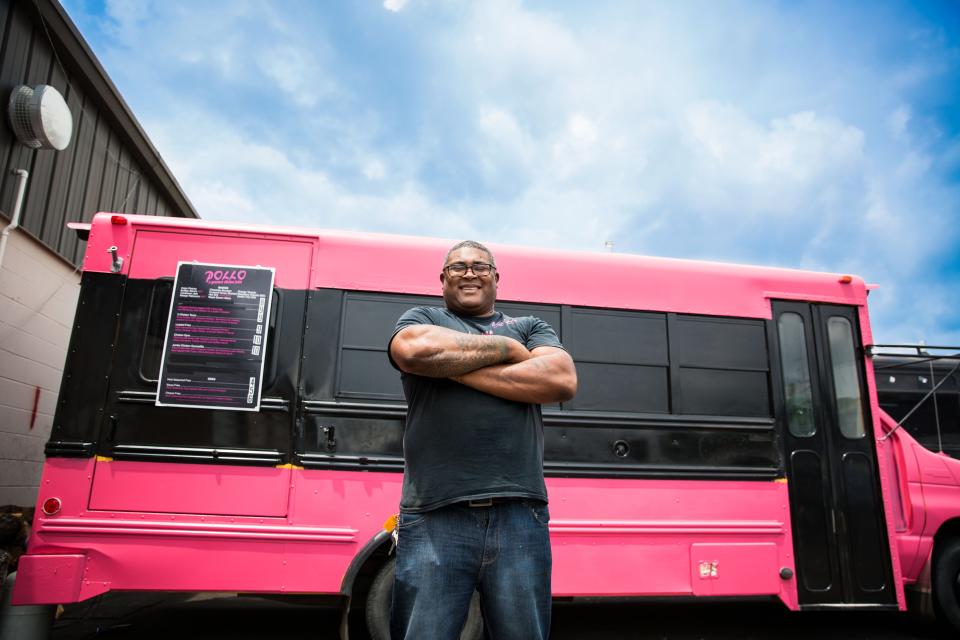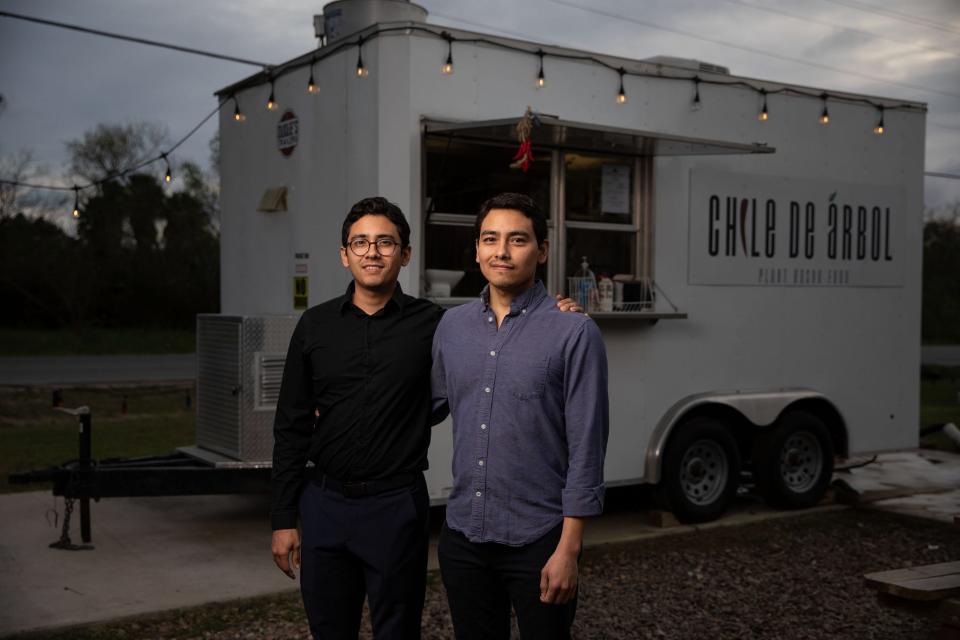Is the city of Louisville getting the message? Everybody wins when food trucks roll
Louisville food truck pioneer Troy King makes an amazing fried chicken sandwich, but city regulators did not appreciate his talent. For many years, they treated King and his Pollo brand as unfair competition to nearby brick-and-mortar restaurants. Yet a new nationwide study provides evidence that he did not deserve such treatment.
“Food Truck Truth,” a first-of-its-kind analysis from the Institute for Justice, disproves the claim that food trucks unfairly threaten the existence of restaurants. Food truck opponents make this claim because restaurants are stuck in one location with higher startup and operating costs than their mobile competitors. However, using 12 years of county-level census data, the study finds that food truck growth is not followed by restaurant decline.
Specifically, the number of food trucks one year has no effect on the number of restaurants the next year in the same county. If anything, the relationship is symbiotic. Food trucks and restaurants both multiplied during the study period.
Louisville food: Where to find sweet Georgia peaches from The Peach Truck in Louisville in 2022

The data would have been helpful in 2016, when a Louisville inspector found King selling chicken within 150 feet of a brick-and-mortar restaurant and threatened to have King’s vehicle towed because he failed to get his competitor’s permission. The distance requirement, implemented in 2011 to shield restaurant owners from competition, pushed food trucks out of prime parking spots until 2018, when the city backed down following a lawsuit from King and another mobile vendor with Institute for Justice representation.
Even then, Louisville did not give up. City Council members came back less than six months later with plans for new restrictions, including “mobile vending zones” designed to limit food truck movement. Fortunately, the threat fizzled, freeing King to focus on food rather than a second round of litigation.
Since then, he has shown why the restrictions were always ill-advised. Building on the success of Pollo, King and his wife, Selena Johnson, opened a brick-and-mortar restaurant called Six Forks Burger Co. and guided it through the COVID-19 lockdowns. They launched a third brand called Fry Daddy’s in February 2021, which now has two Louisville locations.
Regulators everywhere should pay attention. The exact thing that Louisville claimed to support—brick-and-mortar investment—happened only after policymakers got out of the way and let King compete on a level playing field. Similar stories abound nationwide. Yet arbitrary restrictions persist for mobile vendors.
Andy Forde learned the hard way when he tried to open a hot dog cart in rural Georgia. Lisa Howard met resistance when she and her business partners tried to set up a food truck on their own property in rural Wisconsin. And Anubis Avalos and his brother got blocked at the causeway when they tried to roll onto South Padre Island, Texas, with their vegan tacos.
More coverage: Waterfront Wednesday is back! Here's the lineup for the free Louisville concert series

Some jurisdictions use parking restrictions and zoning laws to limit food truck growth. Other jurisdictions impose high fees, which food truck owners must pay in every city or county where they operate.
Patrick McClure, owner of Sprocket’s Famous Freedom Dogs in Nebraska, says he cannot afford to operate his cart in his own town because the fees are too high. Yet when he hits the road, he must navigate one set of rules in Omaha, another set of rules in Lincoln, and a third set of rules in Grand Island. Essentially, every county operates a tollbooth that singles out food truckers.
Besides being anticompetitive, the restrictions are counterproductive. Food trucks expand dining options, generate tax revenue, and create jobs.
Louisville might finally be getting the message. The Kentucky Derby added a block party in 2022 featuring local food truck cuisine. The intent was to support minority-owned businesses, which highlights another benefit of mobile kitchens.
Minorities and immigrants often lack resources to start brick-and-mortar businesses, and food trucks are more affordable. So reducing regulations allows more people to pursue their dreams. One survey shows that 80% of Chicago food trucks are minority-owned, and nationwide about 38% of food trucks are immigrant-owned.
Everyone wins when food trucks roll. Brick-and-mortar restaurant owners might appreciate special protection from competition, but entrepreneurs like King do not pose an existential threat. Regulators should not treat them like they do.
Kyle Sweetland is an Institute for Justice researcher and co-author of “Food Truck Truth.” Eric Schansberg is an economics professor at Indiana University Southeast.
This article originally appeared on Louisville Courier Journal: New study proves food truck businesses don't hurt existing restaurants

